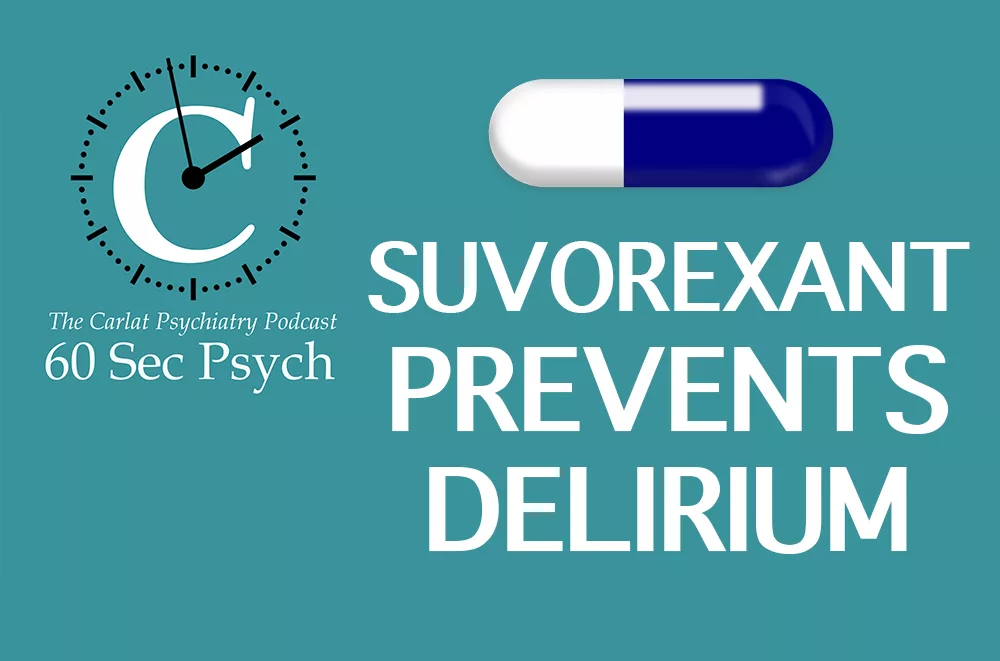We often worry about sleep meds in the medically ill, and there’s plenty of cause to: falls, respiratory suppression, and confusion. On the other hand, sleep disruption is a major risk factor for delirium, and there’s growing evidence that some sleep meds – ramelteon, melatonin, but not the benzos or z-hypnotics - can prevent this sequale of surgery and major medical illness. This study adds the orexin antagonist Suvorexant/Bellsomra to that list. [Study Link]
Published On: 9/16/2020
Duration: 2 minutes, 55 seconds
Transcript:
We often worry about sleep meds in the medically ill, and there’s plenty of cause to: falls, respiratory suppression, and confusion. On the other hand, sleep disruption is a major risk factor for delirium, and there’s growing evidence that some sleep meds – ramelteon, melatonin, but not the benzos or z-hypnotics - can prevent this sequale of surgery and major medical illness. This study adds the orexin antagonist Suvorexant/Bellsomra to that list.
It was a metaanalysis of 7 trials – 3 were the classic prospective RCTs, 4 were retrospective case-control studies. Generally they compared patients who took Suvorexant with others in the hospital or ICU setting. Overall, treatment with Suvorexant reduced delirium by 30%, and delayed the time to delirium with a moderate effect size of 0.44. The limitation was the inclusion of retrospective studies, although the effect was a little larger in the prospective studies and all studies had a positive effect. Also the total size was small for a meta-analysis, 487 patients. The analysis received no industry funding.
Suvorexant may reduce delirium by improving sleep or by blocking orexin, levels of which are elevated in delirium and are associated with increased parasympathetic and inflammatory activity.
Suvorexant, its cousin lemborexant, ramelteon, melatonin, and low-dose doxepin are the only sleep meds that aren’t considered potentially inappropriate in the elderly by the Beers Criteria. So far, 3 of those Suvorexant ramelteon and melatonin, have evidence to prevent delirium. We’ll have more coverage of the other two - ramelteon and melatonin – in our October issue.
Got feedback? Take the podcast survey.


_-The-Breakthrough-Antipsychotic-That-Could-Change-Everything.webp?t=1729528747)



